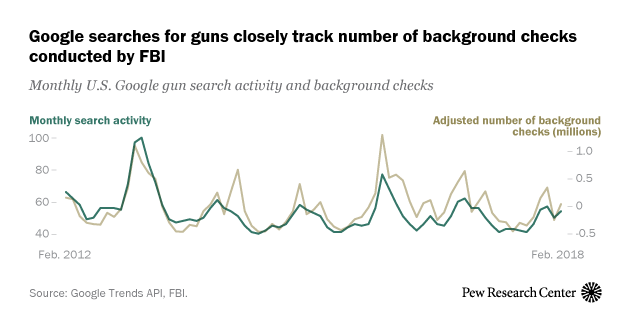 People deal in varying ways with tensions about what information to trust and how much they want to learn. Some are interested and engaged with information; others are wary and stressed.
People deal in varying ways with tensions about what information to trust and how much they want to learn. Some are interested and engaged with information; others are wary and stressed.- 27255Murphy2025-03-20
 Americans are apprehensive about a future in which machines take on more of the work currently done by humans, and most are supportive of policies aimed at cushioning the economic impact of widespread automation, according to a new Pew Research Center sur
Americans are apprehensive about a future in which machines take on more of the work currently done by humans, and most are supportive of policies aimed at cushioning the economic impact of widespread automation, according to a new Pew Research Center sur- 24370Murphy2025-03-20
 The rise of online streaming services such as Netflix and HBO Go has dramatically altered the media habits of Americans, especially young adults.
The rise of online streaming services such as Netflix and HBO Go has dramatically altered the media habits of Americans, especially young adults.- 23229Murphy2025-03-20
 Women in the U.S. are substantially more likely than men to say gender discrimination is a major problem in the technology industry.
Women in the U.S. are substantially more likely than men to say gender discrimination is a major problem in the technology industry.- 30020Murphy2025-03-20
 An analysis of 9.7 million tweets reveals that news organizations played the largest role in which content was linked to in discussions about immigration compared with other information providers.
An analysis of 9.7 million tweets reveals that news organizations played the largest role in which content was linked to in discussions about immigration compared with other information providers.- 22932Murphy2025-03-20
 About seven-in-ten women in Congress mentioned sexual misconduct in their official Facebook posts between Oct. 1 and Dec. 30, 2017, compared with 37% of men in Congress.
About seven-in-ten women in Congress mentioned sexual misconduct in their official Facebook posts between Oct. 1 and Dec. 30, 2017, compared with 37% of men in Congress.- 22020Murphy2025-03-20
 Having access to the internet did not lead to more online exploration for some new internet users, and some had difficulties with the tablets.
Having access to the internet did not lead to more online exploration for some new internet users, and some had difficulties with the tablets.- 28255Murphy2025-03-20
 When Americans are asked what has brought the biggest improvement to their lives in the past five decades, they name technology more than any other advancement.
When Americans are asked what has brought the biggest improvement to their lives in the past five decades, they name technology more than any other advancement.- 23939Murphy2025-03-20
 Facebook and YouTube dominate the social media landscape. But younger Americans, especially those ages 18 to 24, stand out in using a variety of platforms like Snapchat, Instagram and Twitter.
Facebook and YouTube dominate the social media landscape. But younger Americans, especially those ages 18 to 24, stand out in using a variety of platforms like Snapchat, Instagram and Twitter.- 24186Murphy2025-03-20
 News stories about the beginning of Trump administration’s presidency that included one of his tweets were more likely to have an overall negative assessment.
News stories about the beginning of Trump administration’s presidency that included one of his tweets were more likely to have an overall negative assessment.- 25923Murphy2025-03-20
 Voice-controlled digital assistants are being incorporated into a wide range of consumer products, and many U.S. adults say they now use these applications.
Voice-controlled digital assistants are being incorporated into a wide range of consumer products, and many U.S. adults say they now use these applications.- 25359Murphy2025-03-20
 Read key findings from an analysis that looks into the public's interest in guns as potential consumer products, rather than as a subject of general interest.
Read key findings from an analysis that looks into the public's interest in guns as potential consumer products, rather than as a subject of general interest.- 22239Murphy2025-03-20
 Experts are split on whether the coming years will see less misinformation online. Those who foresee improvement hope for technological and societal solutions. Others say bad actors using technology can exploit human vulnerabilities.
Experts are split on whether the coming years will see less misinformation online. Those who foresee improvement hope for technological and societal solutions. Others say bad actors using technology can exploit human vulnerabilities.- 30069Murphy2025-03-20
 While drones have become more prevalent, many Americans have reservations about where and under what circumstances their use should be allowed.
While drones have become more prevalent, many Americans have reservations about where and under what circumstances their use should be allowed.- 24163Murphy2025-03-20
 Science-related Facebook pages draw millions of followers but 'news you can use' posts or ads outnumber ones about scientific discoveries.
Science-related Facebook pages draw millions of followers but 'news you can use' posts or ads outnumber ones about scientific discoveries.- 29023Murphy2025-03-20
 About a quarter of all U.S. adults get news from two or more social media sites, up from 15% in 2013 and 18% in 2016.
About a quarter of all U.S. adults get news from two or more social media sites, up from 15% in 2013 and 18% in 2016.- 26439Murphy2025-03-20
 In the next 20 years, Americans anticipate computer programs that diagnose and treat most diseases, fully automated stores and other technological advances.
In the next 20 years, Americans anticipate computer programs that diagnose and treat most diseases, fully automated stores and other technological advances.- 25915Murphy2025-03-20
 In the past year, Pew Research Center has explored a range of tech-related topics in the news – from online harassment to fake news to net neutrality. Here are some key findings from our research on these and other technology issues.
In the past year, Pew Research Center has explored a range of tech-related topics in the news – from online harassment to fake news to net neutrality. Here are some key findings from our research on these and other technology issues.- 26023Murphy2025-03-20
 Americans agree that certain behaviors – like direct personal threats – constitute online harassment. But they are more divided on others, such as sending unkind messages or publicly sharing a private conversation.
Americans agree that certain behaviors – like direct personal threats – constitute online harassment. But they are more divided on others, such as sending unkind messages or publicly sharing a private conversation.- 25333Murphy2025-03-20
 More than half of comments submitted to the FCC on net neutrality used temporary or duplicate email addresses, and seven popular comments accounted for 38% of all submissions.
More than half of comments submitted to the FCC on net neutrality used temporary or duplicate email addresses, and seven popular comments accounted for 38% of all submissions.- 25617Murphy2025-03-20
 Read key findings from an analysis that looks into the public's interest in guns as potential consumer products, rather than as a subject of general interest.
Read key findings from an analysis that looks into the public's interest in guns as potential consumer products, rather than as a subject of general interest. A majority of Americans say they use YouTube and Facebook, while use of Instagram, Snapchat and TikTok is especially common among adults under 30.
A majority of Americans say they use YouTube and Facebook, while use of Instagram, Snapchat and TikTok is especially common among adults under 30.






















